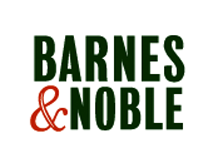
What we have done for ourselves alone dies with us; what we have done for others and the world remains and is immortal.
~Albert Pike
I recently retired from twenty-three fulfilling years as a classroom teacher. One of the treasures from my classroom is a little wooden apple painted with the saying “To teach is to touch a life forever.” Throughout my career, I thought a great deal about the idea of touching lives, of making a difference. I always measured my success in hugs, mementos, and smiles from my students, not by data and test scores. I always prayed that I would have a positive influence on each of the young lives I touched.
I know how powerfully one teacher can impact the life of a person who does not believe in herself, because I was a high school dropout. No matter where we lived, we were always the poorest family in town, that low-class bunch from the wrong side of the tracks. I was the oldest of nine kids, raised on welfare with an unemployable father and a mentally ill mother. I didn’t stand a chance. I quit high school to get married at sixteen, and a few years later found myself a divorced, single mother with no education, no skills, and no future. Factory jobs, waitress work, and night shifts barely kept a roof over our heads.
The one thing I had going for me was my stubbornness; I did not want my children to be raised on welfare, so I worked. Then I had an accident and couldn’t work for several months. The world as I knew it ended.
I sank into a deep despair. While my physical injuries healed, my remaining confidence disappeared into a hopeless depression. Still, with growing boys to feed, I did not have the luxury of giving up. Searching the classified ads, I found a notice that our local community college offered training for those who qualified under a government program. It included a stipend for the hours as well as the training. One requirement was a high-school diploma or GED certificate. Years earlier, I had taken the GED test and received my certificate, but with such low scores that I was ashamed to show it to anyone. I felt stupid, certain that I had little to offer other than a willingness to try. I dug through my papers until I found the envelope with my GED scores and went to the school to meet the advisor who would assess me. Her name was Ruby Martin.
I sat nervously waiting while Mrs. Martin looked over my score sheet, her expression changing to a deep frown. My heart fell. I was prepared to hear her berate me for my failure, my low scores, and wasting her valuable time. She looked at me for a long moment before she spoke.
“Why did you apply for this training program?” she asked. “Why aren’t you applying to college?”
With my mouth dry, my eyes filling and my face burning with shame, I could only whisper, “Because I am stupid, poor, and desperate. I thought maybe…”
She laid her glasses down and looked sternly at me. “Why do you think you are stupid?”
“You have my test scores. You can see for yourself.”
“Didn’t anyone ever explain these scores to you?” she asked. I just shook my head as I stared at my clenched fists in my lap. For the next hour, she explained how the GED scores are not based on percentages the way most tests are, and that my numbers were very high indeed. She assured me that I was not only not stupid, but that I would make an excellent candidate for the job-training program. I was speechless.
The twelve-week training course occupied my days with academics, technical training, and a seminar on how to interview and dress professionally. Throughout those weeks, Ruby Martin came in every few days and walked around the room, stopping to speak to several of us, including me. She was positive, encouraging, and supportive. The basic skills we learned in that program made it possible for me to get a job as a retail clerk and bookkeeper, but the words of Ruby Martin echoed in my mind: “Why are you not applying for college?” I caught myself daydreaming at times of a real education, hoping for a future that I had been certain was out of reach for me.
One day, armed with little more than a tiny spark of hope and a million questions, I dropped by her office without an appointment. Ruby Martin took the time to guide me toward the financial-aid office and assure me that I could qualify for help. She encouraged me to apply for college admission. I was listed as a “non-traditional student,” a thirty-eight-year-old, high school dropout.
College proved challenging and exhausting, yet incredibly rewarding. At graduation, I scanned the faculty in their regalia, and there she was, smiling back at me. I knew she always participated in graduation, but at that moment, I felt she was there just for me.
I transferred my credits and associate’s degree to the university, earned a bachelor’s degree in English for Education, and set out on my own career as a teacher. Still hungry for more learning, though, I applied for graduate school and kept going while teaching middle-school reading and English.
At times, it felt like a hopeless task — teaching young teenagers who had already given up on themselves. Still, I hoped to fulfill that “touching a life” cliché. So I struggled to be both teacher and student, often neglecting my own younger child, then a senior in high school. Though I often felt I was in over my head, ready to quit, I prayed for strength to finish what I had started. As the time drew near for graduation with my master’s degree, I was compelled to tell Ruby Martin how much I appreciated her encouragement back when I felt at my lowest.
I dropped by her office, again without an appointment. As I watched her assist another student, I was overcome with gratitude and the realization that she had truly given me a new life. The student turned to leave, and I stepped forward. “You probably don’t remember me,” I said, “but I went to school here about five years ago. I just want to thank you for your help.”
“Of course, I remember you,” she spoke softly. “You’ll have to tell me your name, but I remember your face and your story. How have you been doing?”
I told her I had graduated magna cum laude and was earning my master’s degree in Education, that I had been teaching for two years, and that I owed all of my success to her. “If you had not taken the time to make me feel as if I had some potential, if you had not believed in me and encouraged me, I would never have gone to college. Nobody ever believed in me before.” The tears came — my tears, her tears, and those of the two people who had come into the room unnoticed while I was talking.
Years later, after a long teaching career, I was standing in the checkout line of a local grocery store when I heard a hesitant voice behind me. “Excuse me, miss, but I think you were my seventh grade teacher.” I turned and had to look up at the speaker, a young man well over six feet tall. He told me his name, and I instantly remembered which class he had been in, where he had sat in my room, and even how he had hated reading. We chatted briefly, and I asked what he was doing these days. “I am going to college,” he answered. “I want to be a reading teacher.”
“Wait a minute,” I said. “The Eddie I remember couldn’t read, wouldn’t read, and refused to read.”
“Yes, ma’am. That was me. I figured if you could reach somebody as stubborn as I was, maybe I could help somebody, too. Because of how you never gave up on me, I now believe I can make a difference.”
I saw Ruby Martin’s obituary in the local newspaper a few years ago and felt tremendous sadness at her passing. But I also experienced great joy in knowing I had taken the time to show my appreciation. Teachers often become just background in the everyday lives of students. We may never know how much influence we have had on them, but when a former student reaches out and says, “Thank you,” we feel a warmth that sustains and strengthens us for the next round. Ruby Martin touched my life forever. I hope she understood that she continued touching the lives of my students as well. A life once touched is forever changed.
~Virginia Reeder








